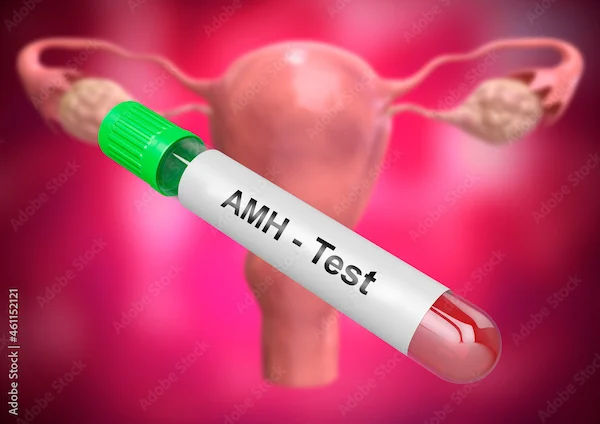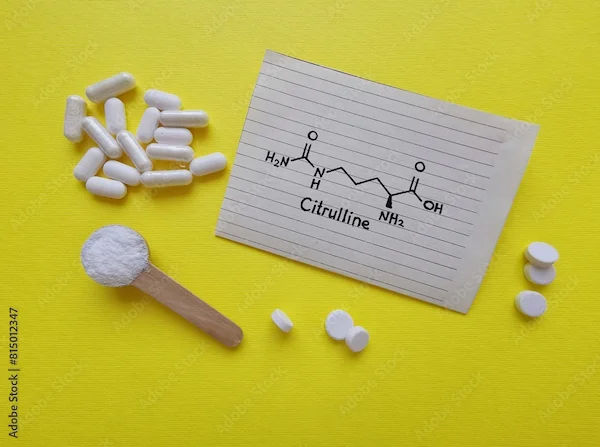How to Reduce High Cortisol Levels?
Discover effective, natural ways to lower high cortisol levels through stress management, better sleep, healthy eating, and expert medical guidance. Take control of your health and restore hormonal balance.

Written by Dr.Sonia Bhatt
Last updated on 3rd Jul, 2025
.webp?tr=q-80,f-webp,w-350,dpr-2,c-at_max 700w)
Introduction
Cortisol, often called the "stress hormone," is produced by your adrenal glands and plays a crucial role in managing stress, regulating metabolism, controlling blood sugar, and reducing inflammation. However, when cortisol levels remain high for too long, it can negatively impact your health—leading to weight gain, high blood pressure, sleep problems, anxiety, and even a weakened immune system.
If you're feeling constantly stressed, fatigued, or noticing unexplained health issues, you might have elevated cortisol levels. The good news is that there are simple, effective ways to bring them back to a healthy range.
What Causes High Cortisol Levels?
Several factors can contribute to high cortisol, including:
Chronic Stress – Work pressure, financial worries, or personal conflicts can keep cortisol elevated.
Poor Sleep – Not getting enough rest disrupts your body’s natural cortisol rhythm.
Excessive Caffeine – Too much coffee or energy drinks can spike cortisol.
Unhealthy Diet – High sugar and processed foods can trigger cortisol release.
Lack of Exercise – Both too much and too little physical activity can affect cortisol.
Certain Medications – Long-term use of some corticosteroids or hormonal treatments may increase cortisol.
Signs of High Cortisol
If you experience these symptoms frequently, it may indicate high cortisol:
Fatigue, even after a full night’s sleep
Weight gain (especially around the abdomen)
Difficulty concentrating or brain fog
Mood swings, anxiety, or irritability
High blood pressure
Weakened immunity (frequent colds or infections)
Trouble falling or staying asleep
Consult Top Experts for Your Symptoms
How to Lower Cortisol Naturally?
Managing cortisol levels naturally involves consistent lifestyle changes. Here’s how you can start:
1. Manage Stress Effectively
Since stress is a major cortisol trigger, finding ways to relax is key. Try:
Deep Breathing Exercises – Slow, deep breaths activate the relaxation response.
Meditation & Mindfulness – Even 5-10 minutes daily can help calm your mind.
Yoga or Tai Chi – Gentle movements combined with breathing reduce stress.
Journaling – Writing down worries can help release tension.
2. Prioritise Sleep
Poor sleep raises cortisol, so aim for 7-9 hours of quality rest. Tips:
Stick to a consistent sleep schedule.
Avoid screens (phone, TV) 1 hour before bed.
Keep your bedroom dark, cool, and quiet.
Limit caffeine after 2 PM.
3. Eat a Balanced Diet
Certain foods help regulate cortisol:
Protein-rich foods (eggs, lean meat, beans) stabilise blood sugar.
Omega-3 fatty acids (salmon, walnuts, flaxseeds) reduce inflammation.
Magnesium-rich foods (spinach, almonds, dark chocolate) promote relaxation.
Probiotics (yoghurt, kefir) support gut health, which influences stress.
Avoid excessive sugar, refined carbs, and processed snacks, as they cause cortisol spikes. Too much coffee—especially later in the day—as well as alcohol, disrupts sleep and stress regulation.
4. Stay Active (But Don’t Overdo It)
Moderate exercise (like walking, swimming, or cycling) lowers cortisol. However, intense workouts without rest can increase it. Listen to your body and include rest days.
5. Connect with Loved Ones
Spending time with family, friends, or pets releases oxytocin, a hormone that counteracts cortisol. Laughter, shared experiences, and emotional support can significantly reduce stress levels.
6. Try Relaxation Techniques
These calming activities help ease tension and bring cortisol levels down:
Aromatherapy – Scents like lavender or bergamot oils can be calming.
Warm Baths – Add Epsom salts to relax muscles.
Music Therapy – Listening to soothing tunes lower stress hormones.
When to See a Doctor?
If lifestyle changes aren’t helping and you still feel tired and stressed or notice weight gain and high blood pressure, consult a doctor. Persistent high cortisol could indicate an underlying condition like Cushing’s syndrome or adrenal gland issues.
If you're struggling with stress, sleep issues, or unexplained symptoms, Apollo 24|7 offers expert consultations and personalised health plans. You can:
Book a doctor’s appointment (online or in-person).
Get a cortisol test to check your levels.
Access mental wellness programs for stress management.
Assess Your Stress Levels
Final Thoughts
High cortisol doesn’t have to control your life. Small, consistent changes in diet, sleep, and stress management can make a big difference. Remember, your health is worth prioritising—take it one step at a time!
Need help? Download the Apollo 24|7 app to connect with specialists and start your journey toward better health today.
Consult Top Endocrinologists
Consult Top Experts for Your Symptoms
Dr Sumanth R
General Physician
2 Years • MBBS
Bengaluru
PRESTIGE SHANTHINIKETAN - SOCIETY CLINIC, Bengaluru

Dr. Sushith C
General Physician
2 Years • MBBS
Bengaluru
PRESTIGE SHANTHINIKETAN - SOCIETY CLINIC, Bengaluru

Dr Venkata Naga Sai Tribhushan Rambhatla
General Physician
3 Years • MBBS
Bengaluru
PRESTIGE SHANTHINIKETAN - SOCIETY CLINIC, Bengaluru

Dr. Anand Ravi
General Physician
2 Years • MBBS
Bengaluru
PRESTIGE SHANTHINIKETAN - SOCIETY CLINIC, Bengaluru

Dr.vishwanath S
Endocrinologist
8 Years • M.B.B.S, MD- INTERNAL MEDICINE, DM Endocrinology
Bengaluru
Apollo Medical Center, Marathahalli, Bengaluru
Consult Top Endocrinologists
Dr Sumanth R
General Physician
2 Years • MBBS
Bengaluru
PRESTIGE SHANTHINIKETAN - SOCIETY CLINIC, Bengaluru

Dr. Sushith C
General Physician
2 Years • MBBS
Bengaluru
PRESTIGE SHANTHINIKETAN - SOCIETY CLINIC, Bengaluru

Dr Venkata Naga Sai Tribhushan Rambhatla
General Physician
3 Years • MBBS
Bengaluru
PRESTIGE SHANTHINIKETAN - SOCIETY CLINIC, Bengaluru

Dr. Anand Ravi
General Physician
2 Years • MBBS
Bengaluru
PRESTIGE SHANTHINIKETAN - SOCIETY CLINIC, Bengaluru

Dr.vishwanath S
Endocrinologist
8 Years • M.B.B.S, MD- INTERNAL MEDICINE, DM Endocrinology
Bengaluru
Apollo Medical Center, Marathahalli, Bengaluru



